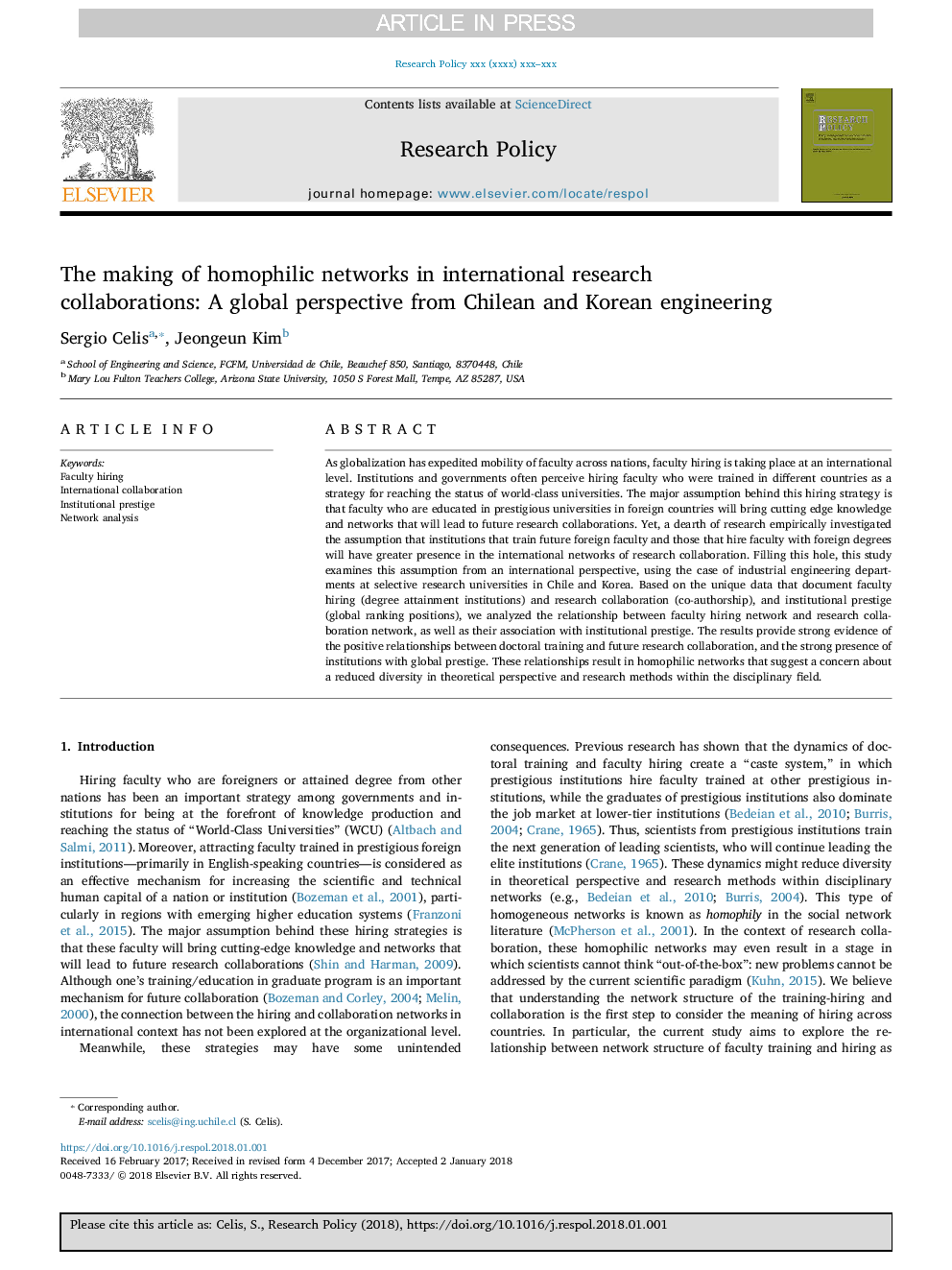ترجمه فارسی عنوان مقاله
ایجاد شبکه های همجواری در همکاری های پژوهشی بین المللی: دیدگاه جهانی از مهندسی شیلی و کره
عنوان انگلیسی
The making of homophilic networks in international research collaborations: A global perspective from Chilean and Korean engineering
| کد مقاله | سال انتشار | تعداد صفحات مقاله انگلیسی |
|---|---|---|
| 90570 | 2018 | 10 صفحه PDF |
منبع

Publisher : Elsevier - Science Direct (الزویر - ساینس دایرکت)
Journal : Research Policy, Volume 47, Issue 3, April 2018, Pages 573-582
ترجمه کلمات کلیدی
استخدام فیزیکی، همکاری بین المللی، اعتبار سازمانی، تجزیه و تحلیل شبکه،
کلمات کلیدی انگلیسی
Faculty hiring; International collaboration; Institutional prestige; Network analysis;

